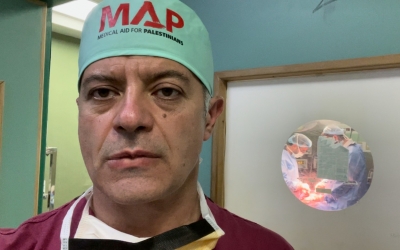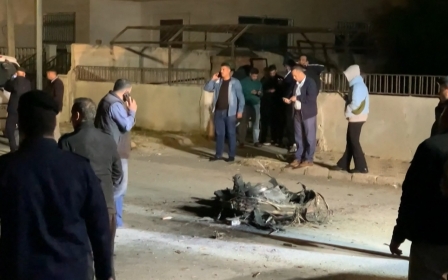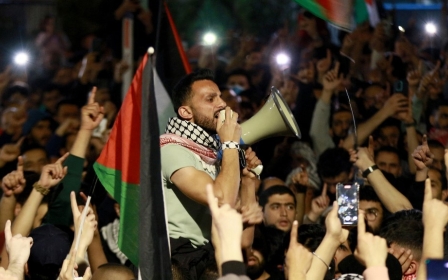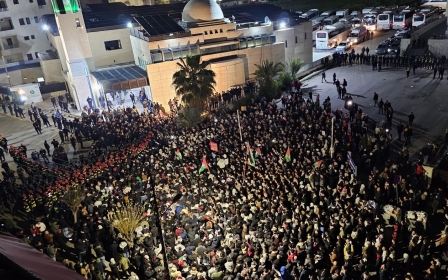Jordanian doctor risked her life to help deliver Palestinian babies in Gaza
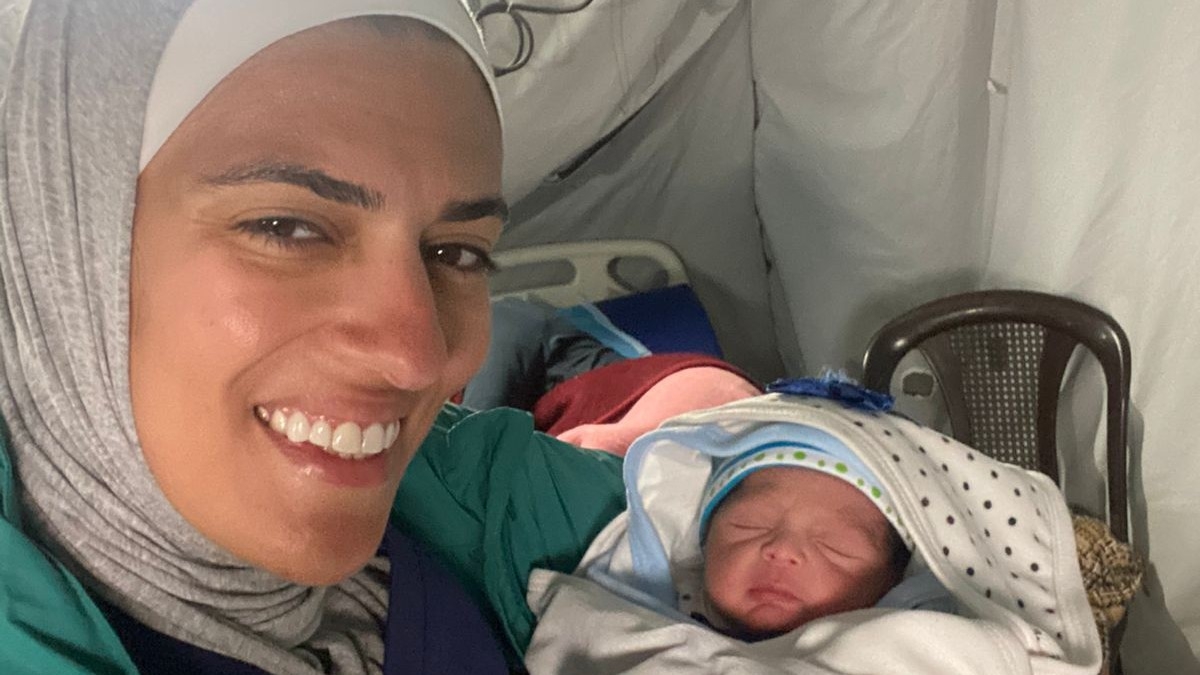
Weeks after the start of the Israeli onslaught against Gaza, Jordanian obstetrician Asil Al-Jallad, 40, decided she could not remain helpless in the face of the critical humanitarian situation unfolding in the besieged enclave.
She decided to travel to Gaza and volunteer her services, aiding hundreds of women in delivering their babies and providing monthly medical check-ups.
Asil, originally from Tulkarm in the West Bank, recounts calling the Jordan Medical Association (JMA) multiple times to enquire about her ability to go to Gaza. She was initially informed that while other doctors could go, obstetricians were not considered in demand for war zones.
"I fought for it," Asil recalls. "I argued that thousands of women in Gaza needed medical care and that we were indeed in demand."
Weeks later, she received the green light, which brought her immense joy. On the morning of 16 March, when Asil bid farewell to her two children, she did pause to reconsider her decision. Yet she decided that it was the right choice.
Stay informed with MEE's newsletters
Sign up to get the latest alerts, insights and analysis, starting with Turkey Unpacked
"I told them that everyone is born to fulfil a mission," Asil tells Middle East Eye. "And my mission as a doctor is to assist those in need, with women in Gaza needing me most at this time."
Accompanied by the International Medical Corps, Asil journeyed to Gaza alongside volunteer doctors from around the world. They aimed to support local medical workers who had been exhausted after months of tireless effort.
According to the Palestinian health ministry, 490 medical workers have been killed, 310 have been wounded, and 80 percent of hospitals have ceased functioning since the outbreak of war on 7 October.
At least 34,183 Palestinians have been killed, mostly women and children.
Dire conditions in hospitals
Asil worked in a field hospital in Al-Mawasi, Khan Younis, in the southern Gaza Strip, where she aided hundreds of women with their monthly check-ups and delivering babies.
"The field hospital consisted of caravans and tents," Asil explains. "With only eight beds and limited facilities, we had to discharge women soon after delivery."
The hospital in Al-Mawasi predominantly served displaced women. Many arrived to give birth without their husbands, as numerous men were reluctant to travel from north to south for fear of detection by the Israeli army, which set up a checkpoint between the two sides.
'Anyone given the chance to assist those in need should not hesitate'
- Asil Al-Jallad
Asil notes that nearly all the women she attended suffered from undernutrition, and had lost weight during pregnancy due to a lack of nutritious food and vitamin supplements.
"The hospital lacked essential medical supplies, painkillers, epidural anaesthesia, feminine hygiene products, and more," she says.
Israel has imposed a strict siege on Gaza since October, prohibiting food imports aside from limited humanitarian aid, which consists mostly of flour and canned goods. Essential items like fruits and vegetables have become scarce and often exorbitantly priced.
Asil encountered numerous complications common among women in low-socioeconomic classes, including postpartum bleeding and inadequate documentation of newborns.
According to the international NGO ActionAid, Gaza has become one of the most dangerous environments for women and girls.
"Every day is a desperate struggle for them to meet their most basic needs. For months, this nightmare has dragged on, leaving women and girls in Gaza wondering why the world has abandoned them," said Riham Jafari, the communication and advocacy coordinator at ActionAid Palestine.
During her stay, seven employees of the World Central Kitchen were killed in an Israeli air strike. Reflecting on this incident, Asil realises that nobody in Gaza was truly safe.
"After the air strike, our managers offered us the option to leave Gaza. But we all chose to remain until completing our mission."
UN Women said last week that six months into the conflict, an estimated 10,000 Palestinian women, including 6,000 mothers, had been killed, leaving 19,000 children orphaned.
“More than one million Palestinian women and girls in Gaza are facing catastrophic hunger, with almost no access to food, safe drinking water, functioning toilets or running water, creating life-threatening risks,” the report said.
During her month-long stay, Asil assisted over 500 women in delivering babies and provided scans for 100-200 pregnant women every day.
Although she returned to Amman a week ago, she eagerly awaits her next opportunity to aid Gaza, pending a call from the JMA.
"While in Gaza, people were surprised to learn I left my children behind and came to help," Asil recalls. "But anyone given the chance to assist those in need should not hesitate."
Middle East Eye delivers independent and unrivalled coverage and analysis of the Middle East, North Africa and beyond. To learn more about republishing this content and the associated fees, please fill out this form. More about MEE can be found here.
